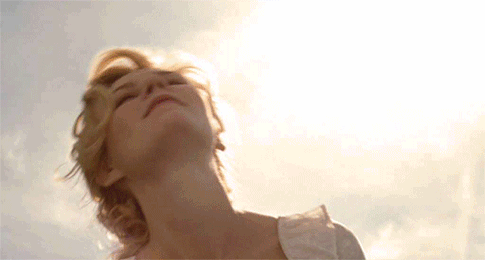Sofia Coppola
Since watching The Virgin Suicides in high school I’ve been a total sucker for Sofia Coppola movies – she’s one of those would-follow-to-the-ends-of-the-earth, can-do-no-wrong people for me. I’ve had a mini-marathon today under the breeze of the air con as Valencia is a stifling 35 degrees even at 9pm.
Some of my favourite things:
Music – where on earth does she uncover these perfect matches? (Sidenote: just found an interview with her music supervisor Brian Reitzell here)
This single shot:

… that theme of wanting to get in without ever actually getting in (figuratively speaking) is translated to the visual style of the movie as well. Blauvelt and Savides never really pull the camera close to the actors, and even in the occasional close-up, the framing looks very stylized. … We, as an audience, are constantly gazing at the action from a non-participatory position, in a sense becoming voyeurs of the voyeurs (the kids). We gaze at them with a slow, deliberate stare, as they gaze slow and deliberately at the lifestyle of the celebrities. It’s a nice droste-effect that elevates the movie and turns it into a sort of mirror for the audience. … [In this long shot, the] camera remains outside at a distance, completely stationary, save for a slow zoom-in. The shot lasts close to 2 minutes and is almost completely silent.
Light:







